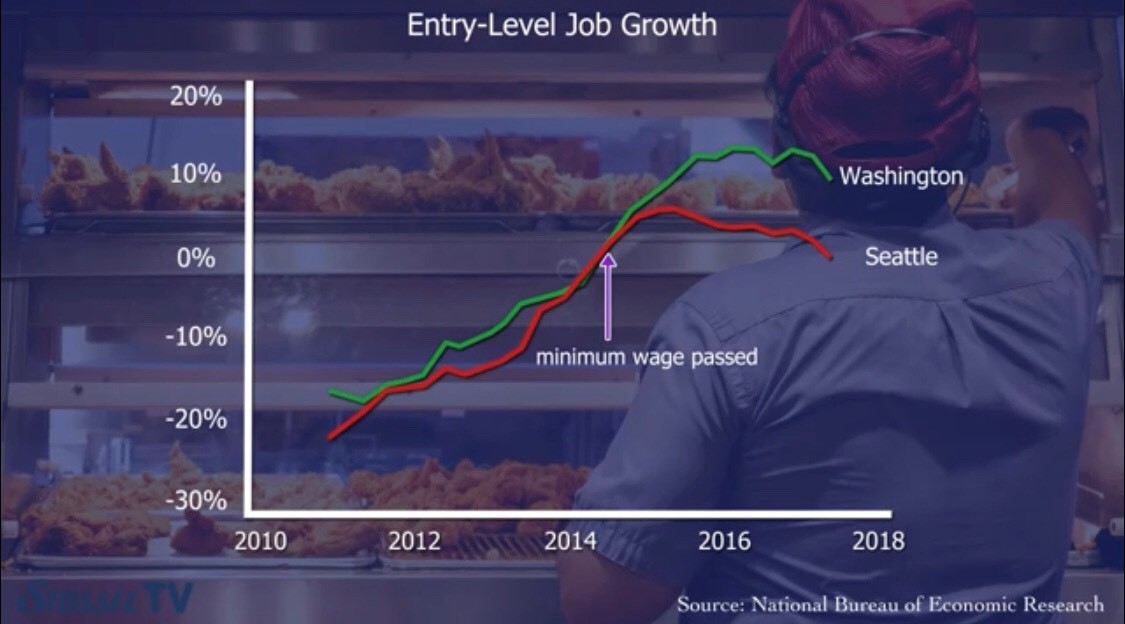It is no secret that when it comes to the cost of doing business, our state is at a key competitive disadvantage compared to other states. For years businesses large and small have consistently complained our state’s layers of complex regulations make it difficult to focus on running and growing their business. Instead employers find themselves mired in the minutia of trying to understand and comply with regulations that are oftentimes costly, confusing, outdated, duplicative, contradictory or unnecessary.
It was a decade ago that Boeing executive Alan Mulally famously declared Washington’s business climate “sucks.” Mulally went on to specifically cite our state’s burdensome regulatory and permitting process.
Not much has changed since Mulally’s colorful remark. And what is true for Washington’s key anchor employers is just as true for entrepreneurs trying to launch a new enterprise, or sole-proprietors trying to grow their business.
Last year, a report by the Kauffman Foundation, a nonprofit organization that promotes and studies entrepreneurship, revealed small business owners in Washington peg our state as having the nation’s 10th least-friendly business regulations. Similarly, a survey by Chief Executive Group of 650 CEOs cited Washington’s “regulatory snares” as a factor in our state’s ranking as the 13th worst state for business.
More recently, Forbes’ “Best States for Business 2012” ranked Washington’s regulatory climate the 12th worst in the nation and the Mercatus Center at George Mason University ranked Washington 13th.
The Washington Economic Development Commission issued a report earlier this year identifying the “five key economic drivers for ensuring job creation and competitiveness.” Among the “five key economic drivers” are regulations, which the WEDC notes are “overly burdensome” in our state and impact the business climate: “Regulatory processes impose costs of doing business, and significantly influence investment behavior, location decisions, startup activity, expansions and hiring.”
Echoing what the business community has been saying for years, the WEDC explains: “A business in Washington must sift through a growing maze of laws, regulations and administrative processes at all levels of government—federal, state and local. This system burdens the regulated entity in terms of money and time delays and particularly small businesses who find it difficult to pay the costs of staff, experts, consultants, attorneys in order to comply.”
The Commission’s report concludes, “Washington’s overly burdensome regulatory system must be addressed as a top economic development priority” and offers a series of recommendations to create a “smarter regulatory system” that will boost the state’s competitiveness and create jobs.
The good news is the Legislature acted on these recommendations during the 2013 Session. Four bills that will make our state’s regulatory system “smarter” were passed and signed by the Governor.
HB 1591/SB 5679 directs certain key state agencies to review existing rules with the goal of improving the processes for licensing, permitting, and inspections, in a manner that reduces the regulatory burden on businesses without compromising public health and safety. The objective is to streamline the regulatory process and make rules less burdensome for businesses.
HB 1818/SB 5765 establishes a pilot program to bring together businesses from a specific sector (starting with manufacturing) within a geographic locale with the multiple layers of government—city, county and state agencies. Together, they will inventory all regulations, laws and processes, making recommendations to streamline regulations and reduce the regulatory barriers impacting that sector. The goal is to reduce the amount of time it takes businesses to conduct their interaction with government so they have more opportunity to create jobs.
HB 1757/SB 5718 provides legislative oversight for the development of a one-stop portal for businesses. It specifies the agency in charge of developing the portal for businesses to learn about regulations, obtain licenses, pay taxes, and more. This has been a goal of the state for decades, but no specific entity has been tasked with ensuring its implementation.
HB 1403/ SB 5680 requires specified state agencies to post on the state’s Business Licensing Service the information a business owner needs to complete an application for any business license, permit and inspection issued by the state. This is a short-term solution as we move toward a one-stop business portal, making it easier for employers to obtain the licenses, permit and inspections required for their business.
These four bills will not fix our state’s massive “overly burdensome regulatory system.” But they will make it better. They target problem areas with sound solutions and are good steps in making our state a better place to live and do business. Improving the state’s competitiveness will foster job creation, which will breathe new life into our economy and generate more revenue for our state.
Representative Norma Smith represents the 10th legislative district. She is a member of the Washington Economic Development Commission, ranking member of the House Technology and Economic Development Committee and primary sponsor of the four regulatory reform bills that were passed by the legislature and signed by the Governor.
Erin Shannon is the Director of the Washington Policy Center’s Small Business Center. The four regulatory reform bills that were passed by the legislature and signed by the Governor reflect long-standing WPC recommendations to improve the state’s small business climate.




